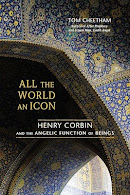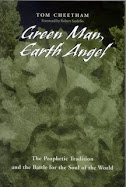"...the Imagination (or love, or sympathy, or any other sentiment) induces knowledge, and knowledge of an 'object' which is proper to it..."
Henry Corbin (1903-1978) was a scholar, philosopher and theologian. He was a champion of the transformative power of the Imagination and of the transcendent reality of the individual in a world threatened by totalitarianisms of all kinds. One of the 20th century’s most prolific scholars of Islamic mysticism, Corbin was Professor of Islam & Islamic Philosophy at the Sorbonne in Paris and at the University of Teheran. He was a major figure at the Eranos Conferences in Switzerland. He introduced the concept of the mundus imaginalis into contemporary thought. His work has provided a foundation for archetypal psychology as developed by James Hillman and influenced countless poets and artists worldwide. But Corbin’s central project was to provide a framework for understanding the unity of the religions of the Book: Judaism, Christianity and Islam. His great work Alone with the Alone: Creative Imagination in the Sufism of Ibn ‘Arabi is a classic initiatory text of visionary spirituality that transcends the tragic divisions among the three great monotheisms. Corbin’s life was devoted to the struggle to free the religious imagination from fundamentalisms of every kind. His work marks a watershed in our understanding of the religions of the West and makes a profound contribution to the study of the place of the imagination in human life.Search The Legacy of Henry Corbin: Over 800 Posts
Saturday, September 8, 2018
Global Perspectives—The Music of Helena Tulve
L'Équinoxe de l'âme (The Equinox of the Soul), for soprano, triple harp or kannel (an Estonian zither, part of the Baltic psaltery family), and string quartet, is based on a lyric text by the Persian mystic and philosopher Shahab al-Din Suhrawardi about the mythical Persian firebird Simurgh (using Henry Corbin’s translation of L'Incantation de Sîmorgh). The Simorgh is no mere phoenix, but a benevolent creature that guides the soul—it lives in a white world, manifests itself to us in daylight, and is too dazzling to view directly. This firebird is a creature of paradox, outside of space and the normal concerns of men; as the poem notes, “All are with it [the Simurgh], but most are without it.”
!!!
Subscribe to:
Posts (Atom)






